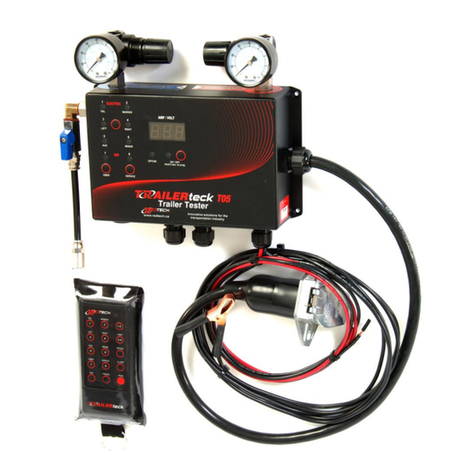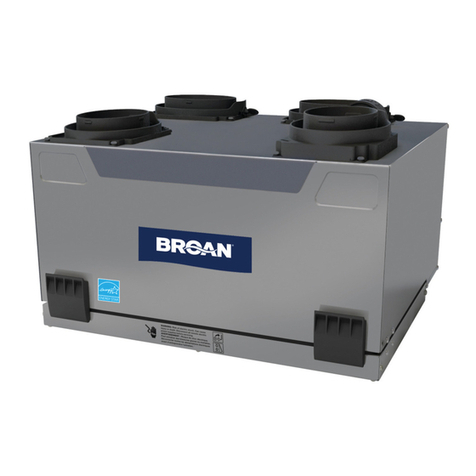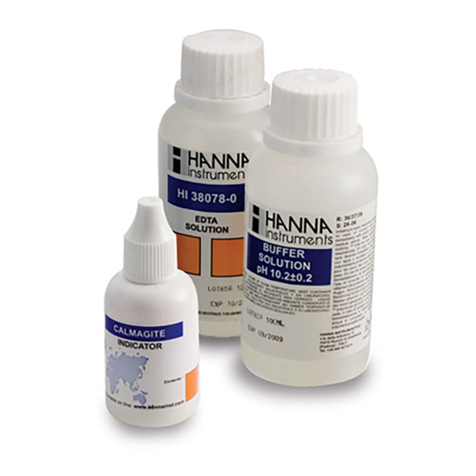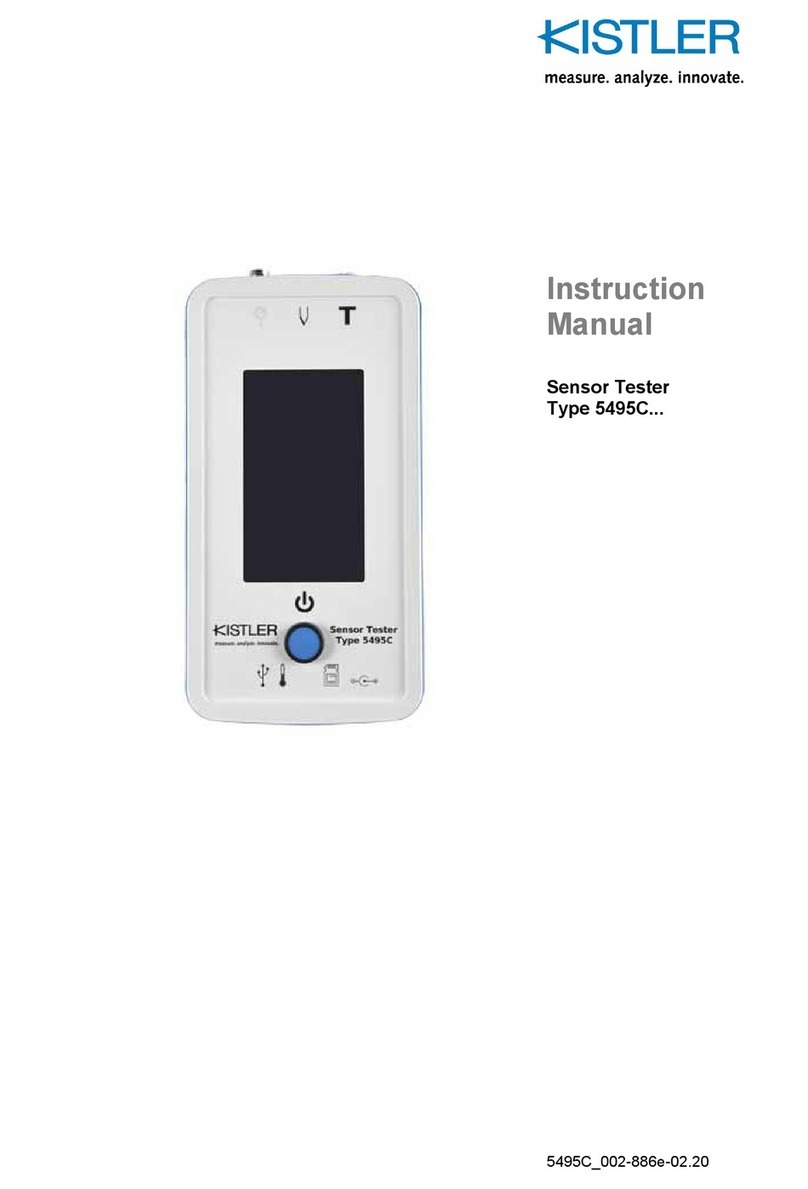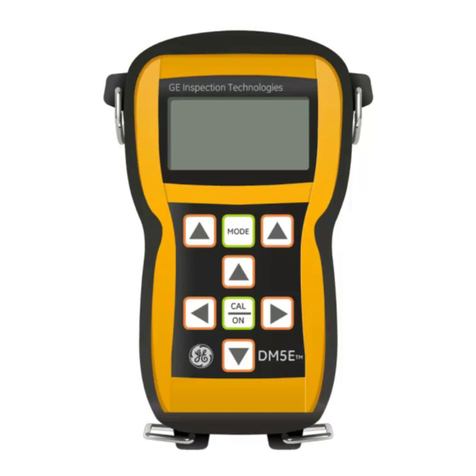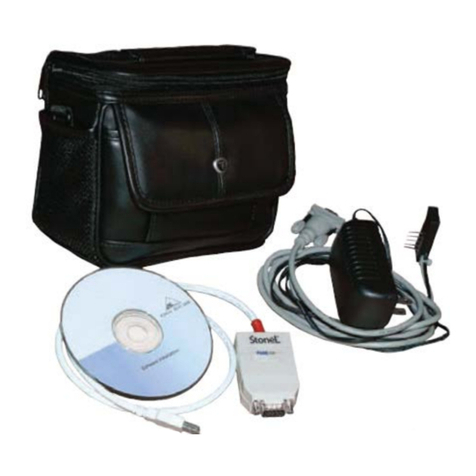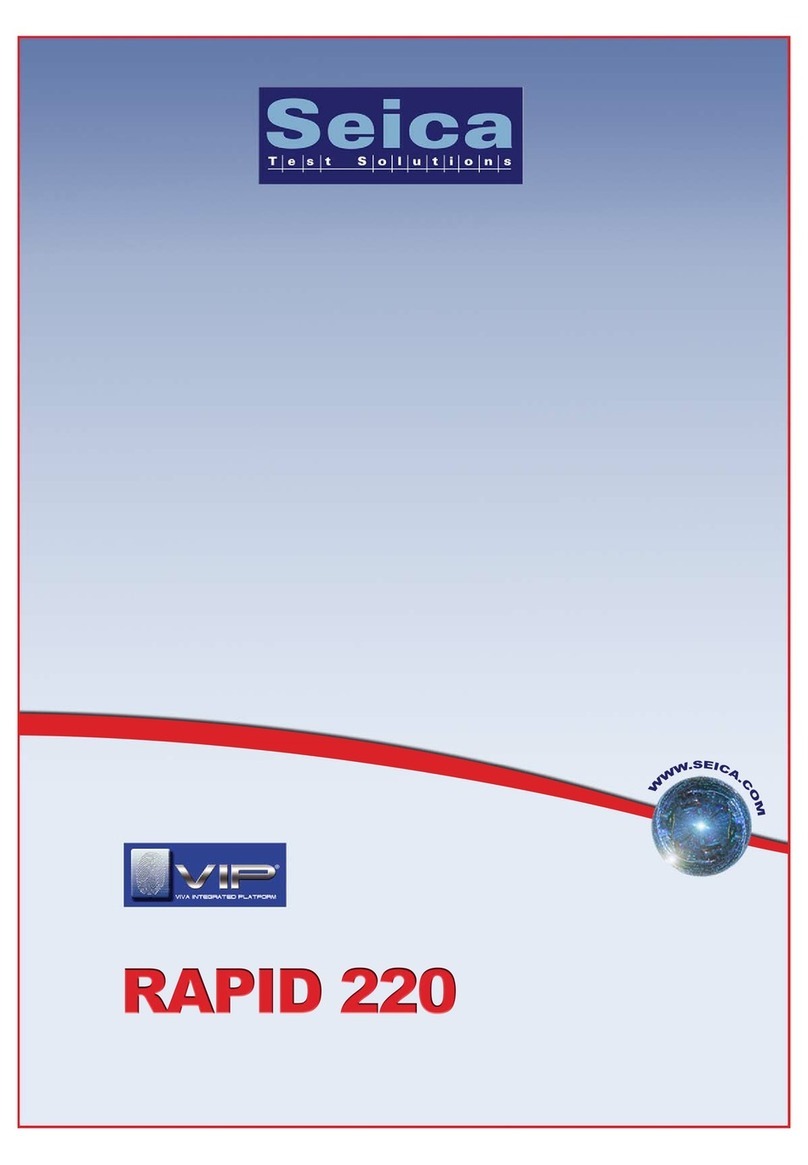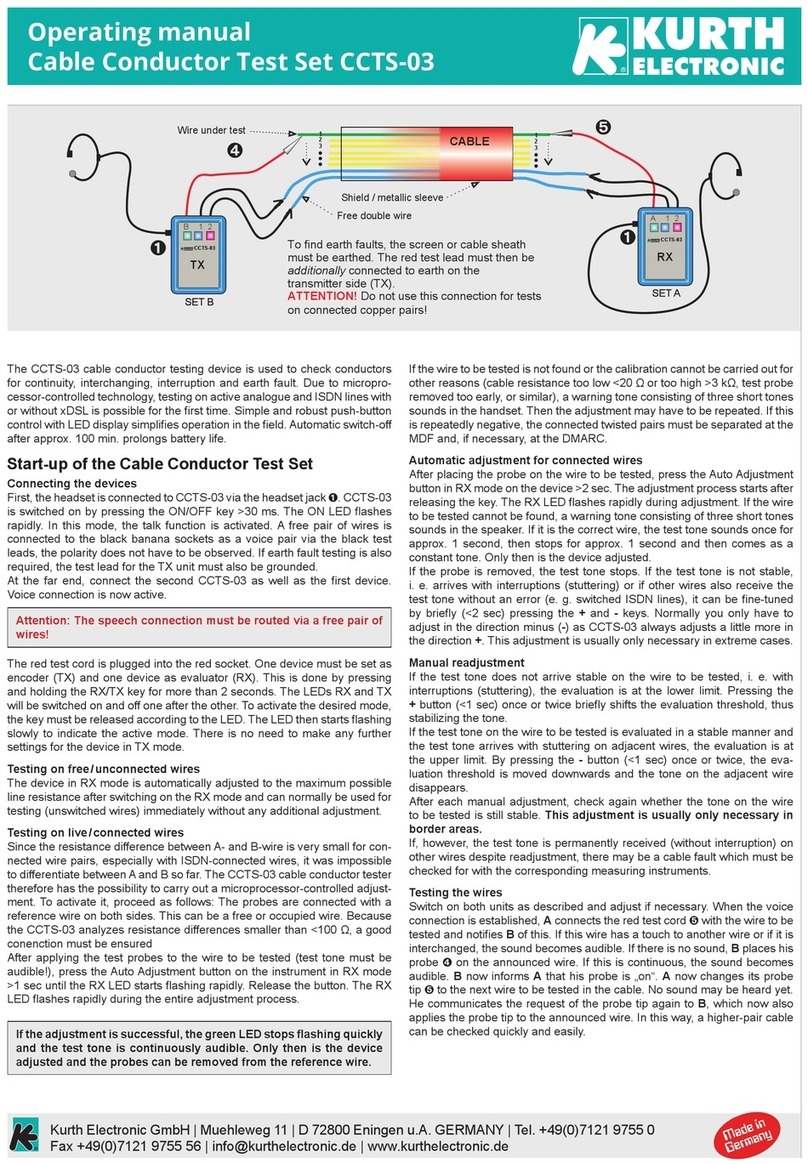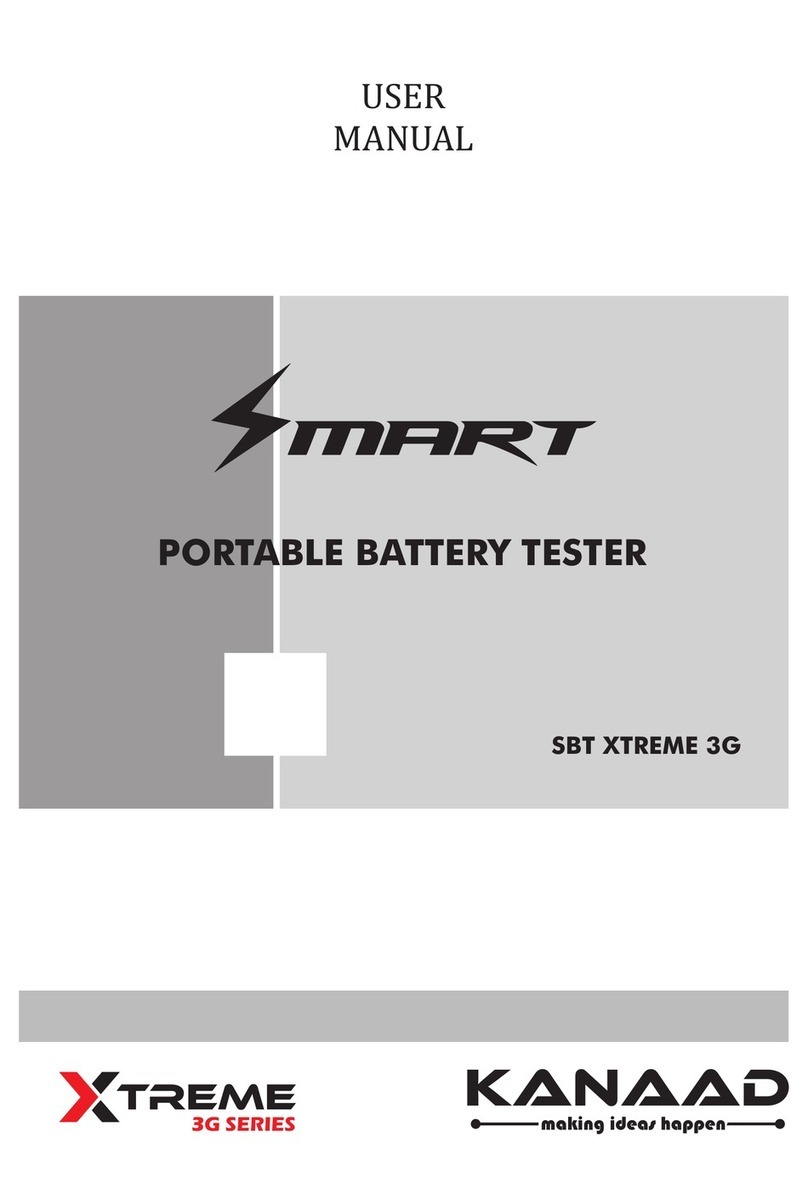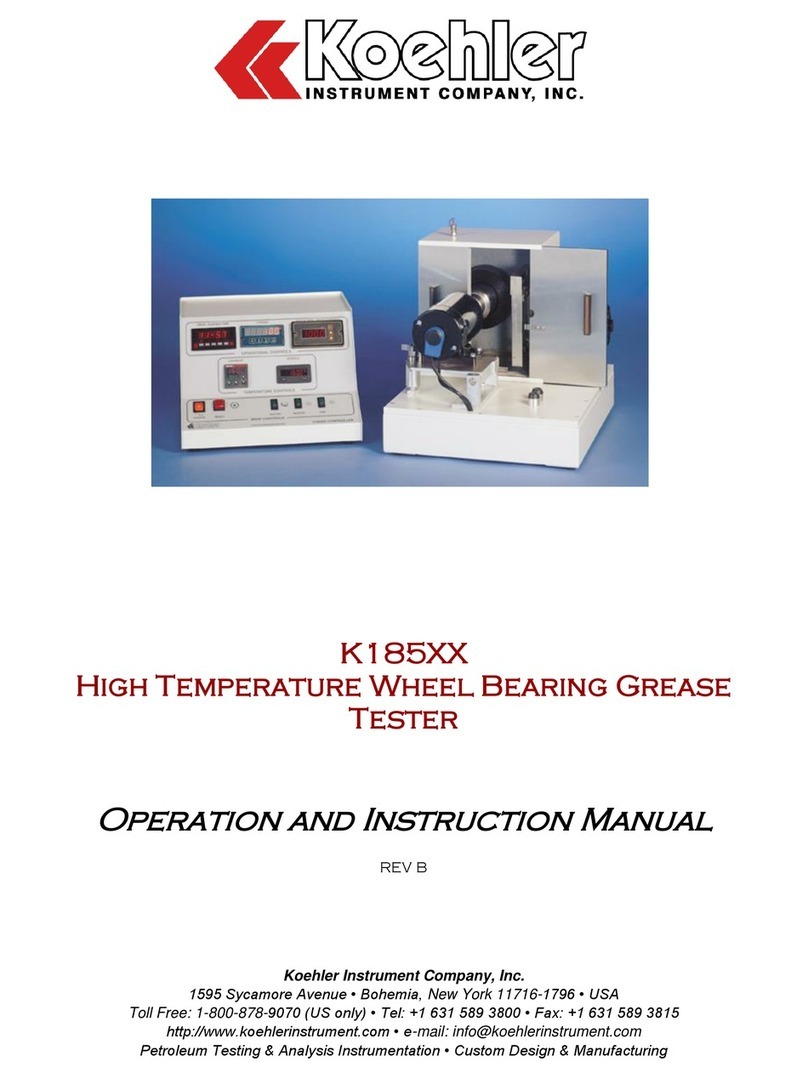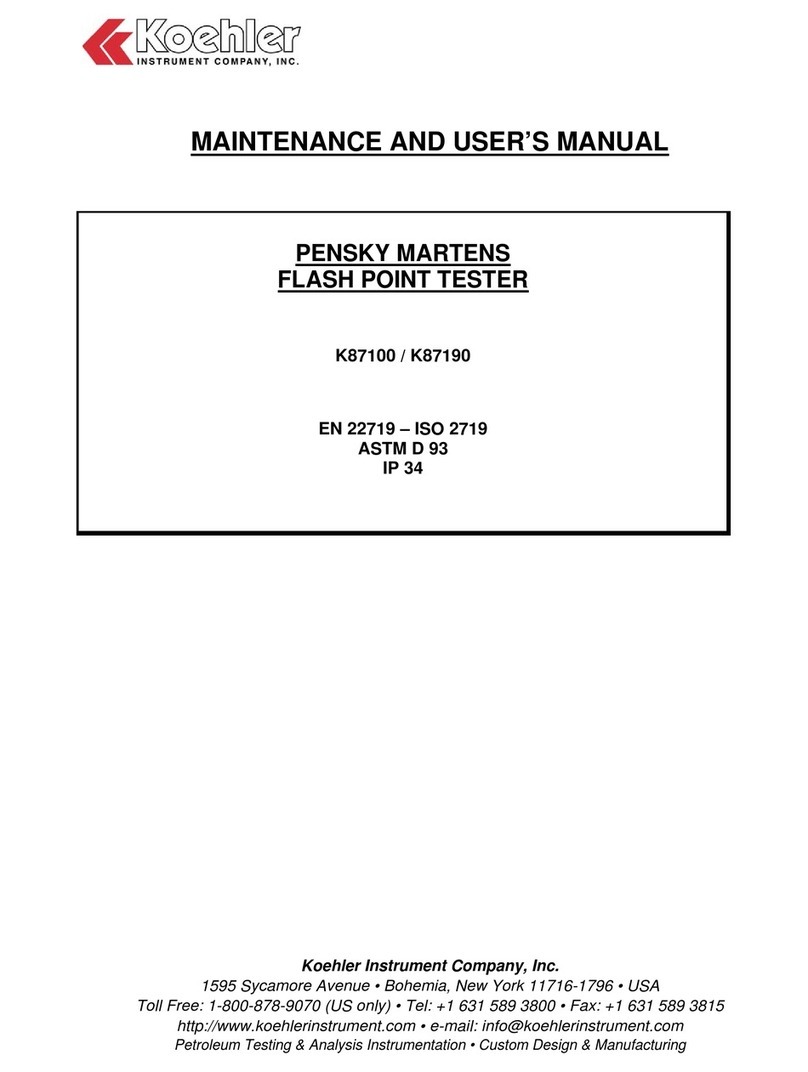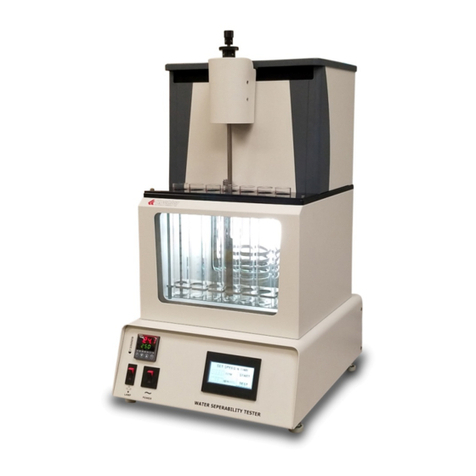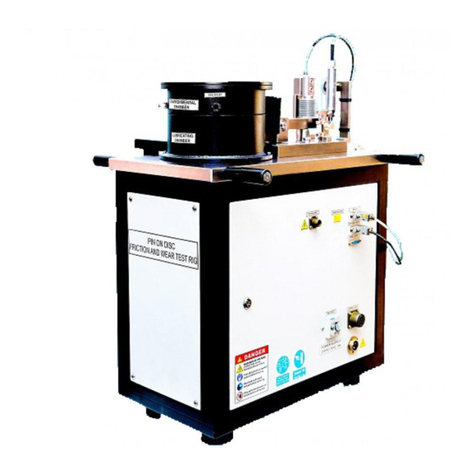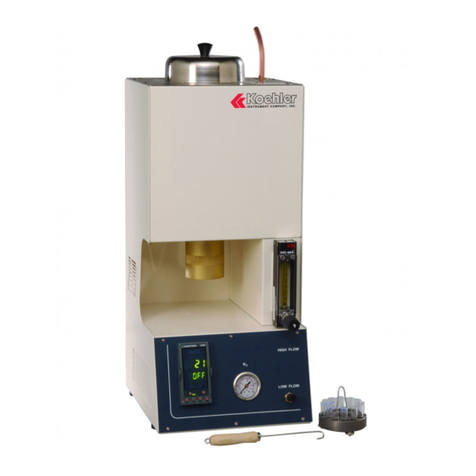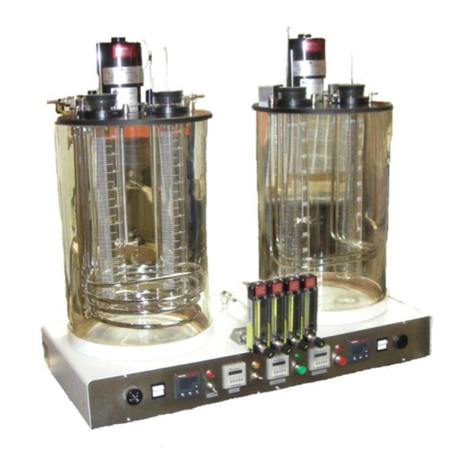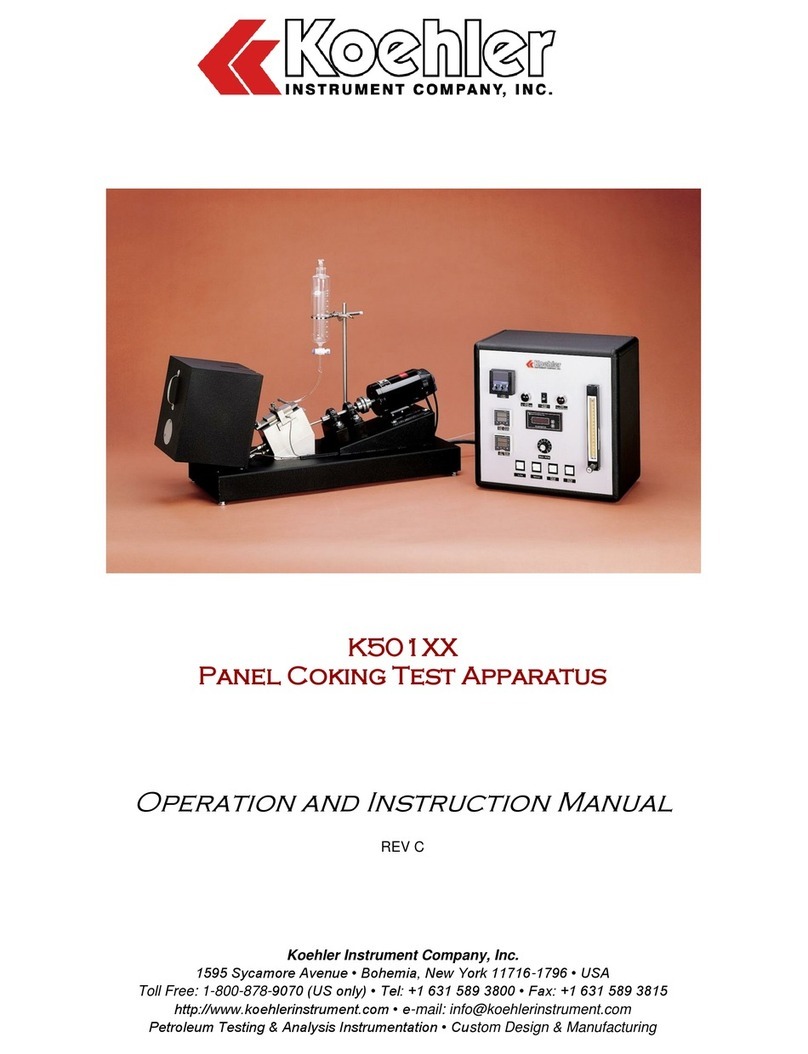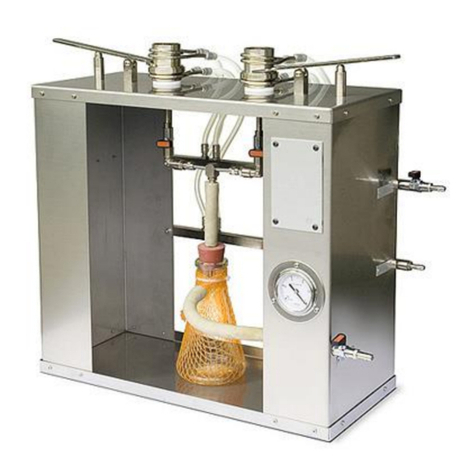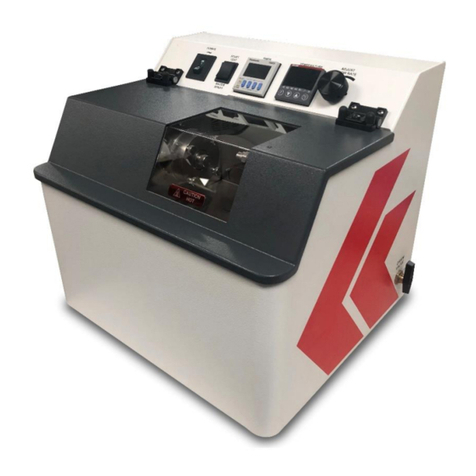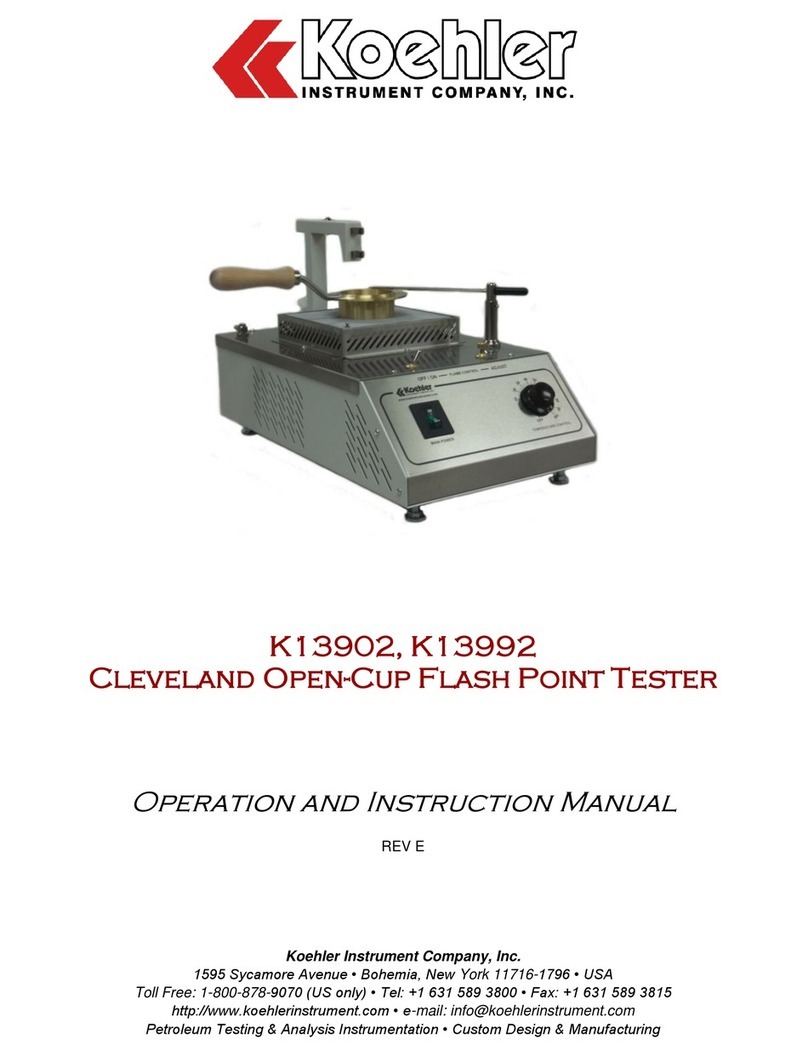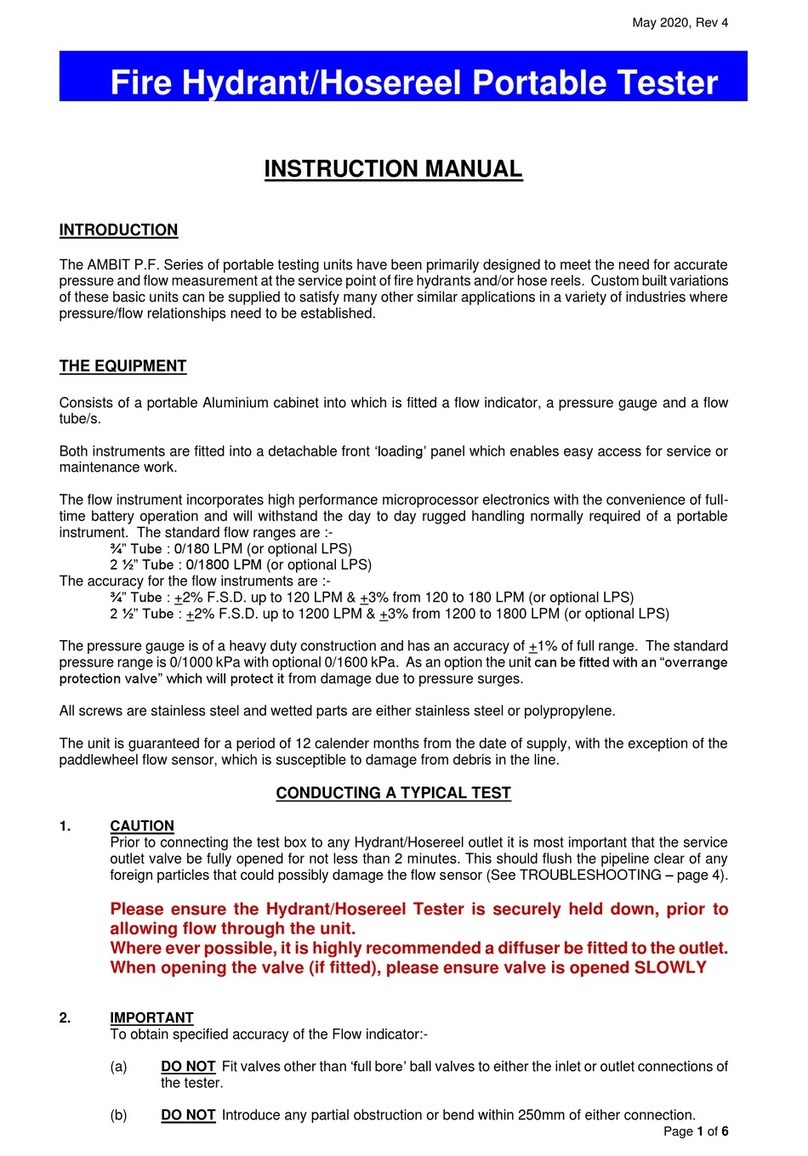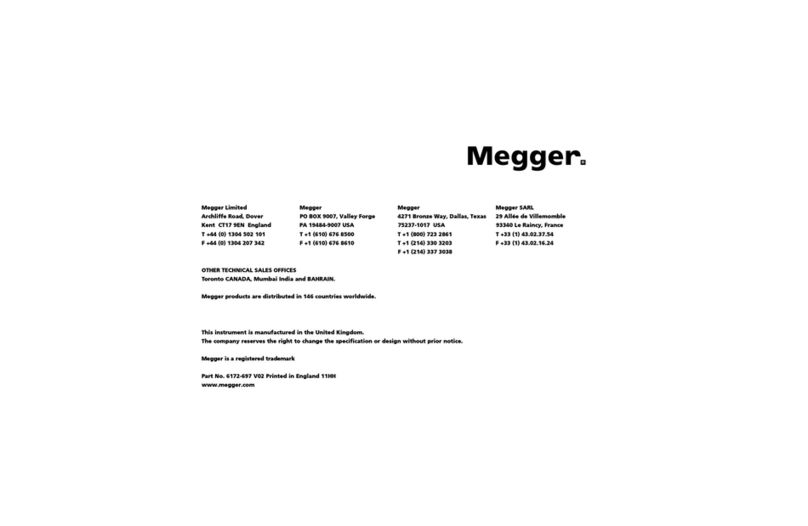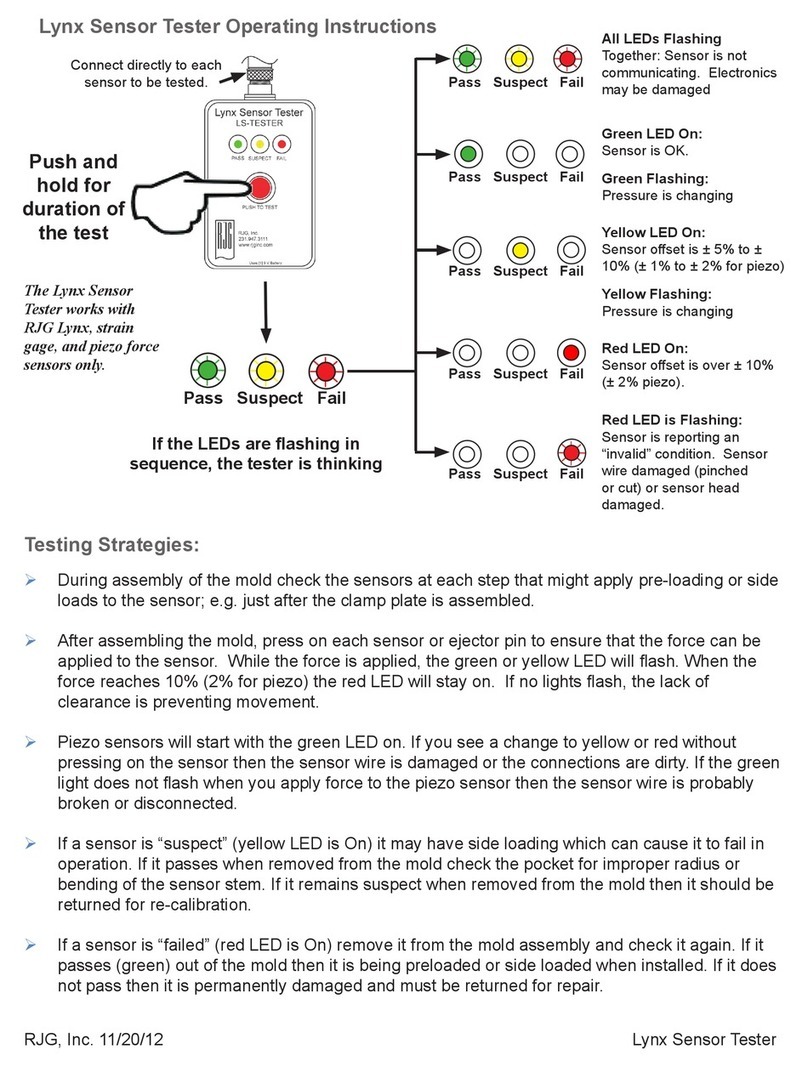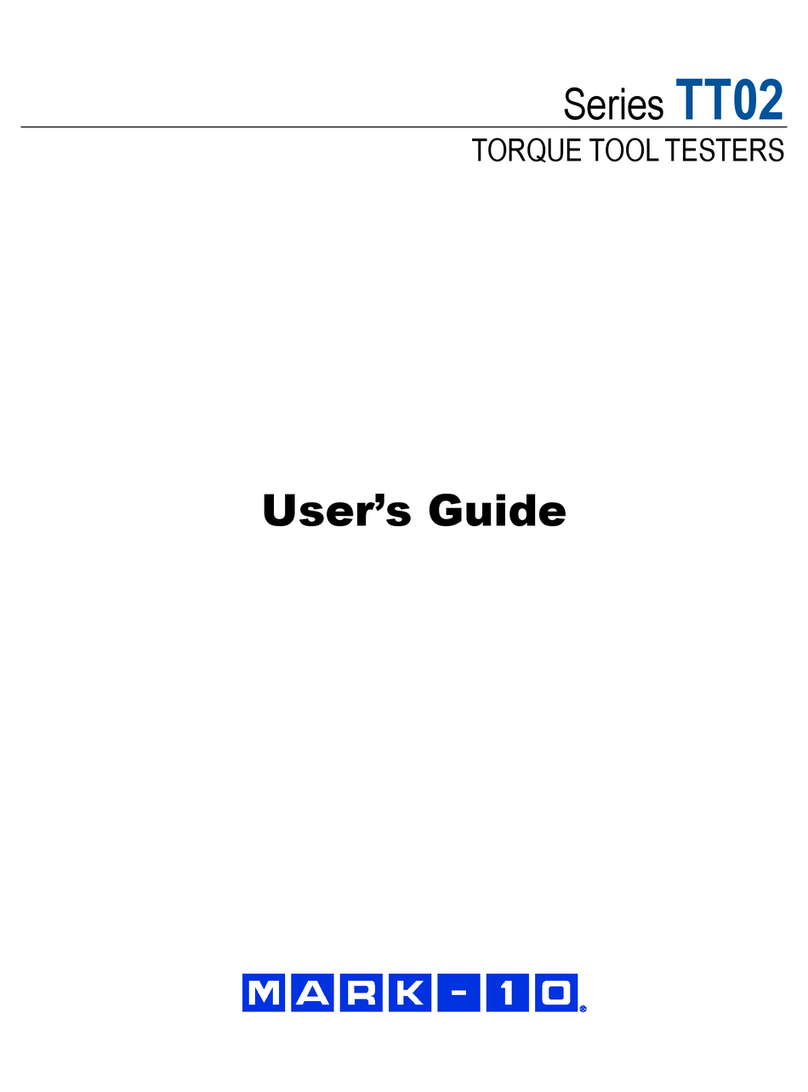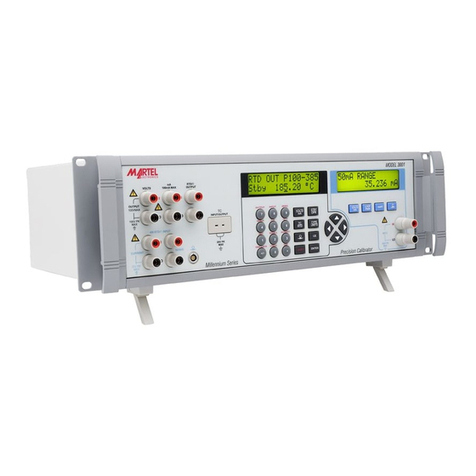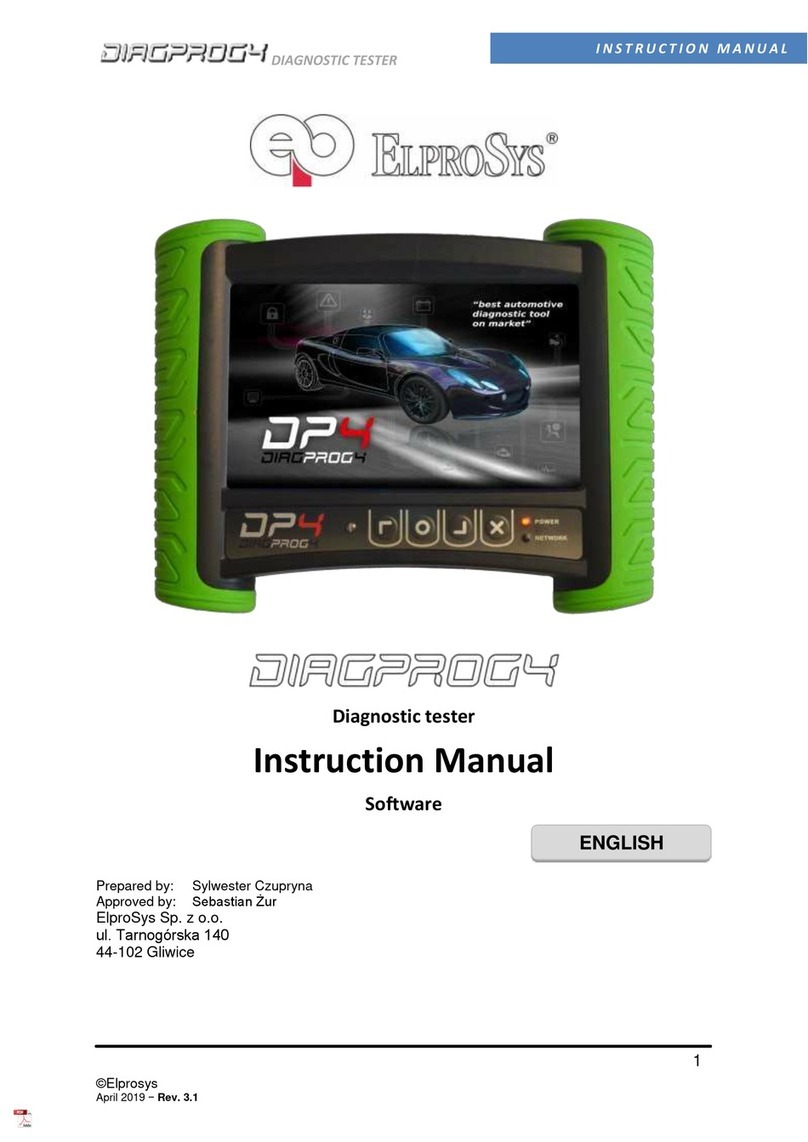K47001 Autoignition Apparatus
Operation and Instruction Manual
K47001-Manual -3-
2 Safety Information and Warnings
Safety Considerations. The use of this
equipment may involve hazardous materials and
operations. This manual does not purport to
address all of the safety problems associated with
the use of this equipment. It is the responsibility of
any user of this equipment to investigate,
research, and establish appropriate safety and
health practices and determine the applicability of
regulatory limitations prior to use.
Equipment Modifications and Replacement
Parts. Any modification or alteration of this
equipment from that of factory specifications is not
recommended voids the manufacturer warranty,
product safety, performance specifications, and/or
certifications whether specified or implied, and
may result in personal injury and/or property loss.
Replacement parts must be O.E.M. exact
replacement equipment.
Unit Design. This equipment is specifically
designed for use in accordance with the applicable
standard test methods listed in section 1.2 of this
manual. The use of this equipment in accordance
with any other test procedures, or for any other
purpose, is not recommended and may be
extremely hazardous.
Chemical Reagents Information. Chemicals and
reagents used in performing the test may exhibit
potential hazards. Any user must be familiarized
with the possible dangers before use. We also
recommend consulting the Material Data and
Safety Sheet (MSDS) on each chemical reagent
for additional information. MSDS information can
be easily located on the internet at
http://siri.uvm.edu or http://www.sigma-
aldrich.com.
Disposal. Upon delivery the furnace does not
contain any material which is to be classified as
hazardous waste. However, process residues
may collect in the insulation during operation.
These may be dangerous to health and/or
dangerous to the environment.
Therefore we recommend proceeding as follows:
•Remove electrical components and dispose of
as electrical waste.
•Remove insulation and dispose of as special/
hazardous waste (wear a protective mask P2,
protective gloves and a protective suit).
•Dispose of the housing as scrap metal
3 Getting Started
The instructions for preparing the equipment
assume that the user is aware of the contents of
this document, which lists the warranty conditions
and important precautions.
3.1 Unpacking
Carefully unpack and place the instrument and
accessories in a secure location. Ensure that all
parts listed on the packing list are present. Inspect
the unit and all accessories for damage. If any
damage is found, keep all packing materials and
immediately report the damage to the carrier. We
will assist you with your claim, if requested. When
submitting a claim for shipping damage, request
that the carrier inspect the shipping container and
equipment. Do not return goods to Koehler without
written authorization.
3.2 Setup
3.2.1 Installation Site
Place the furnace on a non-flammable support
(stone, metal or similar). Keep a safe distance
from flammable components, 0.5 m from the
furnace sides and 1 m from the top. The minimum
distance between the furnace sides and non-
flammable materials can be reduced to 0.2 m.
Ventilation. Provide sufficient room ventilation to
carry off exhaust heat and gases which develop
during the process. Non-observance can result in
a fire risk and danger to health.
